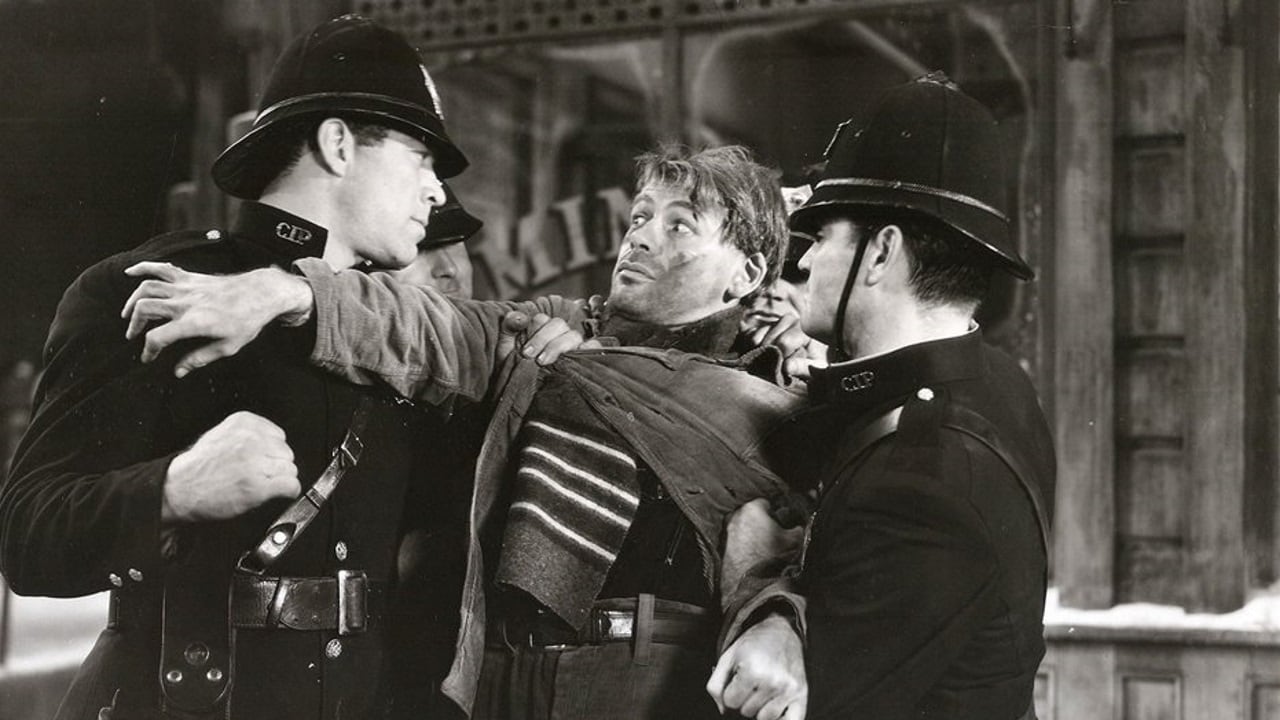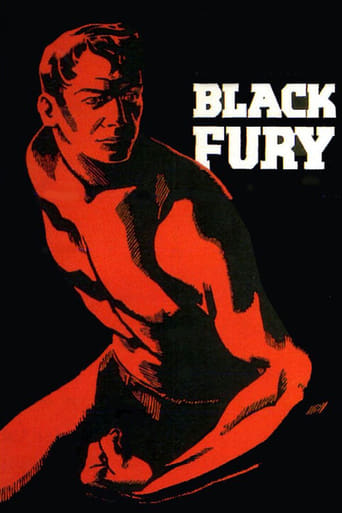

Highly Overrated But Still Good
... View MoreBoring
... View MoreThe film makes a home in your brain and the only cure is to see it again.
... View MoreThe thing I enjoyed most about the film is the fact that it doesn't shy away from being a super-sized-cliche;
... View More"Black Fury" was the only time Paul Muni worked with Michael Curtiz. Potentially, this film could have been great but it is far from that. Muni wasn't very keen on acting in films, his preference was always going to be the theatre. He wasn't able to tone down his acting style for the cinema for the most part and he often appeared to be playing a caricature. He is guilty of this in the film "Black Fury." He is too theatrical in his facial expressions, his body language etc. Paul Muni plays a simple but honest coal miner who unwittingly becomes involved in a bitter dispute between the workers and the management. Muni, along with other miners, is subjected to intimidation. Barton MacLane is cast as a villain (he usually was) who is sent to destroy the livelihood of all the coal miners in this small community. Technically, the film is a disappointment. It is all too obvious that the sets representing the town in question are all on a soundstage. The sets don't look real and the direction from Michael Curtiz tends to suffer. The story itself is actually quite good and the film maintains a steady pace. The climax is also effective.
... View MoreJoe Radek (Paul Muni) is a simple-minded, hardworking immigrant coal miner who dreams of buying a farm and settling down with his girl, Anna (Karen Morley). But when Anna leaves him for another man, Joe falls apart and takes to drinking. In Joe's current state of mind, he's manipulated by a union buster (J. Carrol Naish) into revolting against the mining company. This has disastrous results for the laborers but Joe determines to set things right by any means necessary.Paul Muni's only film with director Michael Curtiz. As was often the case with Muni, his performance can be seen either as brilliant or 100% ham. Whichever it is, I enjoyed it a lot. The cast is full of reliable Warner Bros contract players that are always fun to watch, especially great character actor J. Carrol Naish. It's not surprising this is from WB, the 1930s home of movies about the working class. Certainly interesting from a historical and sociological perspective as a view of labor issues in Depression-era America. It's also fine dramatic entertainment. Based in part on a true story of a 1929 incident at a mine in Imperial Pennsylvania.
... View MoreIf you can't understand what the lead actor is saying half the time, it's kind of hard to enjoy the film! That's what I encountered trying to watch this as Paul Muni, as a Polish coal mine worker, speaks in such a heavy accent I couldn't decipher what he was saying. It gets to be a frustrating experience. If this would come out on DVD with English subtitles, I'd be glad to give it another look.Muni, almost always a fascinating actor, plays good-guy Joe Radek, a Pennsylvania coal miner who is used by his bosses to help them break the union. (This film is very pro-union, pro-working man.). They got Barton MacLane to play the heavy, something he was always good at doing. MacLane played the company boss. I always laugh at how these billionaire film makers always try to make management or the rich guys the evil ones. Maybe it's a guilty conscience from all the money they have made, but I see them more as big hypocrites.However, I find no fault in any movie trying to help the coal miners who did, in fact, had it bad and deserved better. It was dirty job and a dangerous one. It still is, as far as I know, but conditions have to be a whole lot better than a hundred years ago so don't misinterpret what I said earlier: in many cases, management was "the bad guy" way back then. It's just that, in most cases, it has been the opposite case the last 50 years and now it's tough to be sympathetic to union causesAnyway, Muni plays an interesting guy who you have to root for....if you can understand what he is saying with that accent.
... View MoreRather standard working-class drama of the sort that Warner Brothers was turning out, though with more emphasis on the issue of unions and union-breaking than was usual. The usual stalwart support is present, such as Ward Bond and even Akim Tamirov.Maybe part of the reason it doesn't have more impact on viewers these days is that the working class audience, living on the edge of poverty, doesn't really exist as a social consideration anymore.The people who made this movie and the audience who lived this kind of life are now all dead. Far fewer people know what existence was like when it was constantly overcast by the threat of imminent poverty. In the Great Depression, during which the generation described by Tom Brokaw in his book "The Greatest Generation" grew up, unions were still controversial and there was a good deal of violence involved in the development of collective bargaining. Goons might bash in your head. A union organizer might be (and at least in one case was) castrated and murdered. And a miner might blow up a mine. One third of the nation was unemployed and there was no Social Security or Unemployment Benefits.Well, no time for a history lesson here. And it's just as well because I know practically nothing of the history of industrial relations.Considering it as a film, I can only echo what another reviewer, "Howdymax", in still another of his unusually perspicacious comments, has already said. The movie is Dreck.Try to think of it as an historical artifact, like a Leni Lenape tomahawk or a Roman coin. It's no longer useful but it's oddly fascinating to see and handle. That may help you get past Mr. Paul Muni's outrageous overacting. If he could do it, he would chew up not only the scenery but the walls of the mine shaft, the Miner's Bar, his supporting players, the script, the director, the camera, and the viewer.
... View More